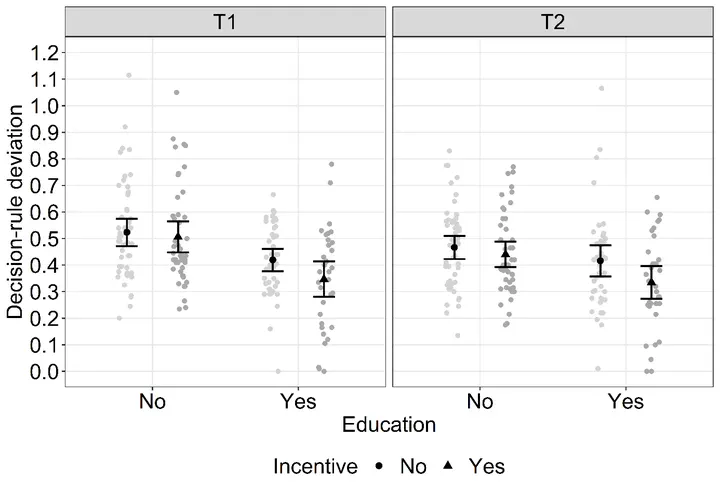Education Increases Decision-rule Use: An Investigation of Education and Incentives to Improve Decision Making
12 Jan , 2022·,,,,
Marvin Neumann
Martijn Hengeveld
A. Susan M. Niessen
Jorge N. Tendeiro
Rob R. Meijer

Abstract
Robust scientific evidence shows that human performance predictions are more valid when information is combined mechanically (with a decision rule) rather than holistically (in the decision-maker’s mind). Yet, information is often combined holistically in practice. One reason is that decision makers lack knowledge of evidence-based decision making. In a performance prediction task, we tested whether watching a short educational video on evidence-based decision making increased decision-makers’ use of a decision rule and their prediction accuracy immediately after the manipulation and a month later. Furthermore, we manipulated whether participants earned incentives for accurate predictions. Existing research showed that incentives decrease decision-rule use and prediction accuracy. We hypothesized that this is the case for decision makers who did not receive educational information about evidence-based decision making, but that incentives increase decision-rule use and prediction accuracy for participants who received educational information. Educational information persistently increased decision-rule use. This resulted in increased prediction accuracy, but only immediately after receiving the educational information. In contrast to the existing literature, incentives slightly increased decision-rule use. We did not find evidence that this effect was larger for educated participants. Providing decision makers with educational information may be an effective means to increase decision-rule use in practice.
Type
Publication
Journal of Experimental Psychology: Applied, 28